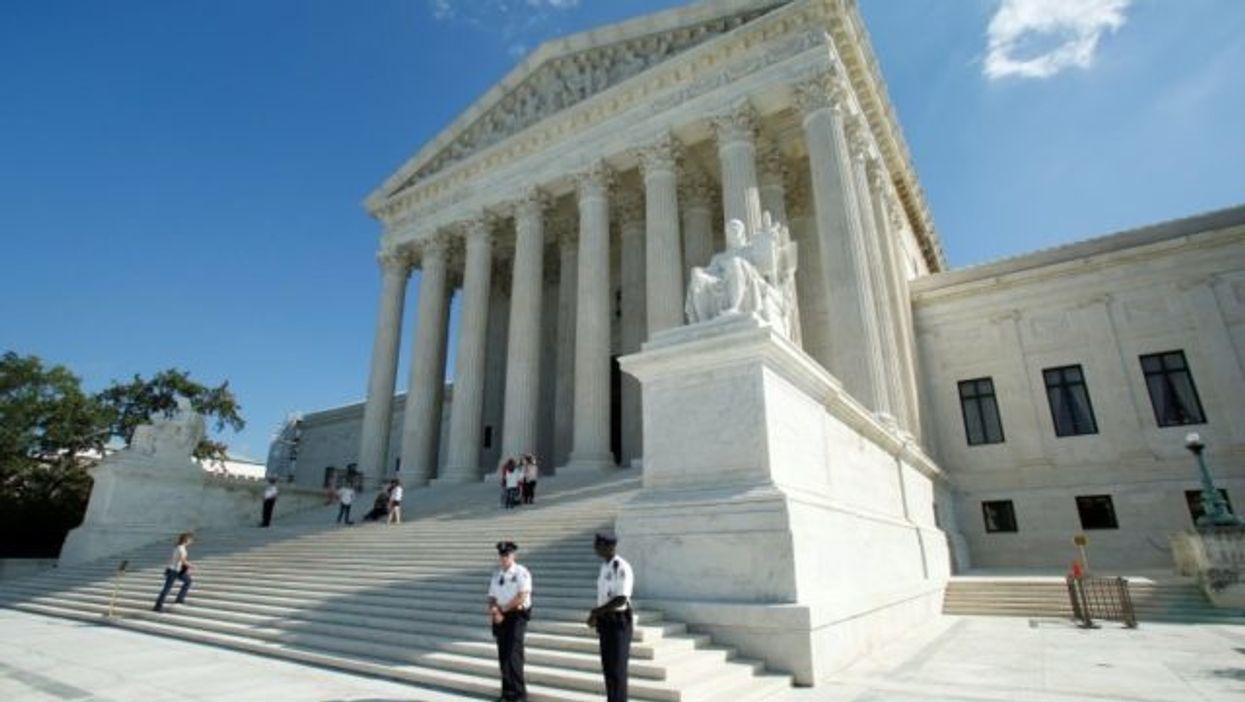How The Supreme Court May Enable Trump To Reshape Government
Reprinted with permission from Alternet
An obscure case before the Supreme Court has the potential to reshape the federal government in a fundamental way. If conservative activists get their wish, President Donald Trump — and any president that comes after him — will have even more power to bend federal agencies to his will.
The case is Seila Law LLC v. Consumer Financial Protection Bureau, the agency that was the brainchild of Sen. Elizabeth Warren (D-MA). As part of her desire to free the mandate of consumer protection from the political winds, winds that are frequently at the backs of powerful business interests, Warren ensured that the director of the bureau couldn't be removed by the president from the post except under extraordinary circumstances. Unlike the members of the Cabinet, then, the directorship wouldn't be expected to change hands with every new president, and a business-friendly president couldn't remove an aggressive director without good cause.
It's this feature of the bureau's structure that Seila Law, a firm being investigated by the CFPB, sought to challenge in arguments before the court on Tuesday. The firm argues that the independence of the bureau from the presidency violates the Constitution. This argument relies on an idea common in conservative legal thought: that the president has sole and unmediated authority over executive branch agencies. Inherent in this authority, they say, is the power to fire executive branch officers.
While this may seem like a technical argument, it has wide-reaching implications. Many government agencies have this independent structure in which the president appoints a director but cannot easily fire them. Such agencies include, as Jane Manners and Lev Menand explained in the New York Times: "the Federal Reserve, the Federal Trade Commission, the Social Security Administration, the National Labor Relations Board and the Postal Service."
Especially in the case of the Federal Reserve, this independence is highly prized. It has been widely feared that if a Fed chair served at the pleasure of the president, U.S. monetary policy would be manipulated specifically for the immediate benefit of the president, rather than the long-term good of the country. (Trump has proven these fears to be warranted. While he had previously railed against the unfounded notion that the Fed was acting for the political benefit of President Barack Obama, once he took office, Trump has repeatedly lambasted his own appointee Jerome Powell for failing to follow his own demands.)
Warren feared that unless the CFPB was independent, it would be corruptible by the normal forces and special interests in U.S. politics.
But the lawsuit before the Supreme Court seeks to strip the CFPB's independence. And the U.S. Justice Department — which is itself directly subject to the president's power — has backed this effort. Seila Law wants to use this argument to abolish the bureau entirely, while the DOJ argues the CFPB can be preserved by subjecting the director to the oversight of and the potential for termination by the president.
The court has the option of applying its ruling narrowly to the CFPB — or applying it to all independent agencies. This means the Supreme Court could effectively nullify the independence of key executive branch agencies, further consolidating presidential power.
Manner and Menand, writing for the Times, don't think the Supreme Court will go so far as to rule out the possibility of independent agencies. Instead, they argue, it's likely that the court will interpret the language that gives the agencies independence such that it doesn't actually do that at all — essentially having the same effect of nullifying their independence. They argue that such a legal argument would be completely contrary to the history of the text, but there's no reason to believe this would constrain a conservative majority on the court committed to reining in independent agencies.
It's impossible to know for sure how the court will rule ahead of time, of course. Chief Justice John Roberts has surprised court watchers before, and as the pivotal vote on the court, he's less likely to take a dramatic and sweeping approach to changes in precedent than some of his conservative colleagues may be inclined to do. But the implementation of conservative jurisprudence is the precise reason Republicans have worked so hard to put people like Roberts on the bench, so there's little reason to doubt about the direction he'll pull the country.









